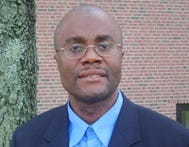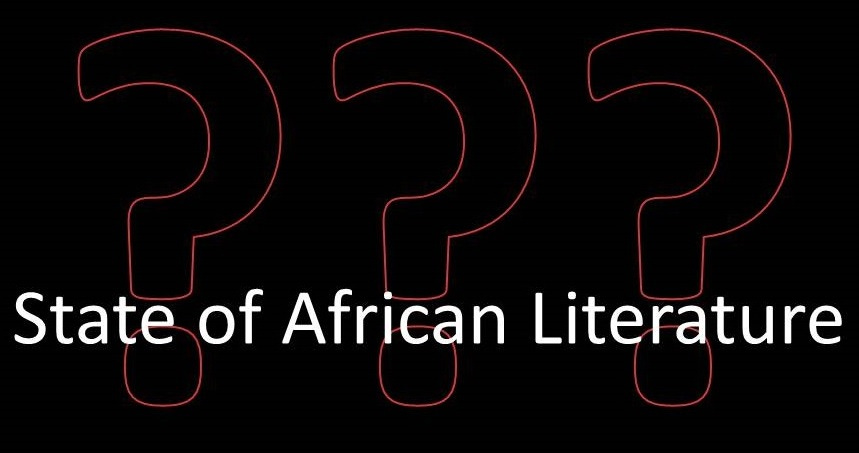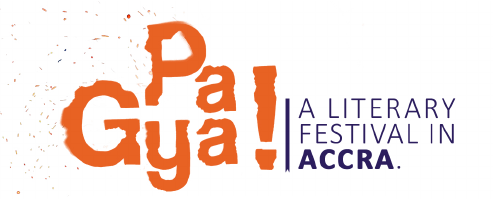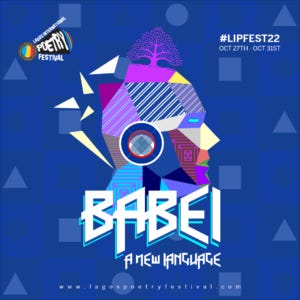Welcome to the latest issue of The African Novel digital newsletter. You have joined an exciting global community of publishers, authors, readers, writers, poets, and performers, as well as academics, missionaries, and even current and former Peace Corps volunteers. We are all connected in our passion for appreciating, celebrating, and sharing African literature and performance in its many forms.
To savor this e-newsletter, we’d highly recommend you patiently read from top to bottom!
IN THIS ISSUE
Editor-in-Chief's Message
Book Review: Disgrace
The African Novel Podcast: Obi Nwizu
Author Readings: Patricia Jabbeh Wesley
State of African Literature
Bookshelf
Book Events & More
Our Radio Archives
African Proverb: Mandinka
Editor-in-Chief’s Message
For the October issue of The African Novel digital newsletter, I’d like to call your attention to the writer we feature on our podcast. Obi Nwizu is a promising poet and novelist in Harlem, toiling her way through her passion while working as an adjunct professor of creative writing and composition. She proudly admits that her craft pays homage to two uniquely talented writers she reveres immensely. The two writers are alive today only in the body of work they left behind: African-American James Baldwin and Colombian-born Gabriel García Márquez. Nwizu came to our attention when I read about the Zora Neale Hurston Writing Fellowship she attended at Bard College over the summer among a class of seven. All the best to you, Obi Nwizu!
Enjoy!
Cyril Ibe, Ph.D
P.S. Perhaps a friend forwarded this email to you. Sign up now to receive The African Novel directly in your inbox.
Please share the enjoyment of reading The African Novel digital newsletter with a friend, family member, or colleague.
Book Review
Title: Disgrace
Author: J.M. Coetzee
Publisher: Viking Books
Reviewer: Benjamin Kwakye
In Disgrace, South African-Australian writer John Maxwell Coetzee in two hundred and twenty pages attempts to raise some very complex questions about human nature. That he succeeds with his economy of words is a remarkable tribute to Coetzee’s skills as a novelist.
When Disgrace opens, 52-year-old Professor David Lurie is divorced. He relies on a prostitute’s services for a while. When the prostitute dumps him, Professor Lurie turns his attention to one of his students. When he’s caught, the professor refuses to cower in the face of the angry reaction of those among his outraged peers. Professor Lurie loses his job and retreats to his daughter’s smallholding. While staying with his daughter, the divide between father and daughter becomes clear: one is deep in the logical if irreverent, formalities of academic life; the other is rooted in the practicalities of farm life. How the two lifestyles intersect and where they diverge is itself a representation of the deep dichotomy not just between father and daughter, but also within the larger society itself.
Most of the issues raised by Disgrace rightfully must take place outside of the text of the novel. Why would an intelligent professor risk so much by sleeping with one of his students? Are we so blind to our own violent acts that we tend not to see our guilt in the violence perpetrated by others? To the extent a man – or woman – is ready to bear the scorn of society, is it society’s business how that person lives his or her life? As is evident from these questions, J.M. Coetzee’s Disgrace has remarkable depth and raises other complex questions concerning the internal struggles, racial and otherwise, of modern South Africa.
J. M. Coetzee was the recipient of the 2003 Nobel Prize in Literature and lives in South Africa. Disgrace was the winner of the 1999 Booker Prize.
Editor’s Note: Reviewer Benjamin Kwakye is The African Novel’s “Resident Novelist.
Episode #7
Harlem-based writer Obi Nwizu, author of a collection of short stories, titled Residue, talks with Editor-in-Chief Cyril Ibe.
“I majored in journalism and then minored in English with a creative writing focus. How I got into writing [short] stories was through that minor. From there I went into master’s in creative writing -- writing fiction, where I was really focused on writing and the techniques,” Nwizu says.
Past Podcast Episodes:
Jeanne-Marie Jackson, author of The African Novel of Ideas
Patricia Jabbeh Wesley, author of Praise Song for My Children
Bayadir Mohamed-Osman, author of Second Hand Smoke
Vanessa Onwuemezi, author of Dark Neighbourhood
Cyprian Njoku Josson, author of The Immigrant Ladder
Kabuika Kamunga, author of Kabuika Wants to Make New Friends
Author Readings
Hear authors themselves reading from their works.
Liberian-born poet Patricia Jabbeh Wesley reads from her books of poetry, including Praise Song for My Children.
Questions on the State of African Literature
Three questions are posed to writers every month. Listen here to their answers.
Responding to the questions is Nigerian-born professor of English, Obi Iwuanyanwu (Obiwu)
Are writers of African fiction “taking the literary world by storm?” these days?
Is the “tide turning” for African literature in America and the rest of the West?
Are we witnessing “a renaissance” of African literature in our world today?
Bookshelf
What writers and readers of African titles are reading:
Comparative literature professor Jeanne-Marie Jackson (Baltimore, Maryland): Brotherhood by Mohamed Mbougar Sarr (in English translation; French original); The Wolf at Number 4 by Ayo Tamakloe-Garr; The Madhouse by T.J. Benson; and An Unusual Grief by Yewande Omotoso (just started reading).
Poet Obiwu (Ohio, USA): The Girl with the Louding Voice by Abi Dare; Ijele by Uche Nduka; Samarkand by Wole Soyinka; Ingrid Joker: Poet Under Apartheid by Louise Viljoen.
Writer Arinze Ifeakandu: Hue and Cry by James Alan McPherson, and The Great Mistake by Jonathan Lee.
Writer Obi Nwizu (New York): Another Country by James Baldwin and The Girl With the Louding Voice by Abi Dare.
Poet Bayadir Mohamed-Osman (Maryland): Pathologies of Power: Health, Human Rights, and The New War on the Poor by Dr. Paul Farmer; Secrets of Div. ine Love by A. Helwa.
Writer/Poet Vanessa Onwuemezi (London): The Palmwine Drinkard by Amos Tutola; Lote by Shola Von Reinhold.
Novelist Cyprian Josson (Chartres, France): Ladies Trip by Fanny Enoh; Burning Grass by Cyprian Ekwensi.
Novelist Benjamin Kwakye (Michigan, USA): Chronicles from the Land of the Happiest People on Earth by Wole Soyinka; The Love Songs of W.E.B. Du Bois by Honoree Fanonne Jeffers.
Cyril Ibe (Ohio, USA): Things Fall Apart (in French)/Le Monde s’effondre by Chinua Achebe; Songs of Benjamin by Benjamin Kwakye.
(As a reader or subscriber of this newsletter, you can submit titles of African fiction and other books on your reading list. Tell us in what part of the world you reside).
Book Events & More…
In Person
What: Liberian-American poet Patricia Jabbeh Wesley, professor of English at Penn State Altoona, will be the featured poet for the Pa Gya! A Literary Festival 2022, the sixth edition. Highlights of the literary arts festival will include readings, book launches, panel discussions, performances, sales, and literary prize awards.
Where: Accra, Ghana.
When: October 14-16, 2022.
For more information: Visit here.
In Person
— The Lagos International Poetry Festival 2022 will be held Oct. 27 - 31. This year’s theme is “Babel…A New Language. The week-long festival convenes poets, writers, artists, and thinkers from across the globe, featuring conversations, readings, performances, workshops, and adventure.
On Demand:
What: Library of Congress’ Interviews with African Writers, a three-part series titled “Conversations with African Poets and Writers Series.” Featured are Nigerian-born author Chimamanda Ngozi Adichie, South African novelist and playwright Damon Galgut, and Tanzanian-born novelist and Nobel Laureate Abdulrazak Gurnah.
When: Available since May 2022.
Where: Library of Congress
For more information: Visit here.
Our Radio Archives
Coming soon: Offerings of rare, exclusive interviews and audio documentaries for our paid subscribers.
A partial list of archived Premium offerings:
Interview: Chinua Achebe biographer Ezenwa-Ohaeto
Interview: Nobel Laureate Wole Soyinka on his legendary cousin, Fela
Interview: The Black press in America
Interview: South African novelist Mark Mathabani
Audio Documentary: Eighty Gifts for Poet Laureate Gwendolyn Brooks
An audio tour of the Mandela House Museum in Soweto, South Africa
Interview: Ethiopian-Jewish Filmmaker Orly Malessa
Interview: U.S. filmmaker Ileen LeBlanc on Take Us Home, a documentary pic on the exodus of Ethiopian Jews to Israel.
Interview: American historian Edward Haas on slavery, the civil war, and the uncelebrated heroism of Blacks in the Union Army.
Interview: Herbert Martin, professor emeritus of English literature and African-American studies at the University of Dayton and co-editor of The Collected Novels of Paul Laurence Dunbar (Ohio University Press).
Thanks for reading The African Novel! Subscribe for free to receive new posts and support our work.
African Proverb
"The hunter in pursuit of an elephant does not stop to throw stones at birds.” — Mandinka proverb
Our Team
Cyril Ibe, Ph.D., Editor-in-Chief (Ohio)
Resident Novelist/Reviewer Benjamin Kwakye (Michigan)
Nollywood Director/Filmmaker/Novelist Cyprian Josson (Chartres, France)
Contributor/Writer Kabuika Kamunga (Rochester, Minnesota)
Past Issues of The African Novel eNewsletter:
Issue #4















